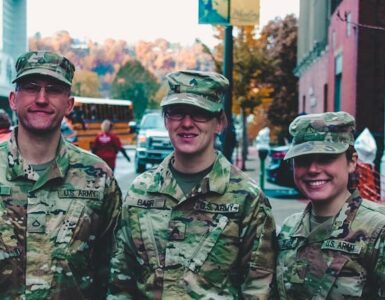Nearly half of those who reside in the four Arizona counties that border Mexico identify as Native American or Latino, according to U.S. Census data.
This population also has unique health care needs that call for a more diverse health care workforce.
In response, the University of Arizona Health Sciences’ Office of Diversity and Inclusion created the Focusing Research on the Border Area (FRONTERA) program to increase and diversify the pipeline of future health care providers and researchers.
“The border is a unique region where if you look at the number of population on this side of the border is lower than compared to the one on the Mexican [side of the] border,” Alejandra Zapien Hidalgo, FRONTERA program coordinator said. “When we come back the students are like, ‘wow.’ They realize how important public health is and science. They have in their mind that they want to go back to those communities and work in rural communities.”
FRONTERA allows UA students who aspire to work in the health care or medical research industries to spend ten weeks receiving hands-on experience addressing health challenges unique to the U.S.-Mexico border area, especially in rural, bicultural towns.
“I learned about what I can bring to the table when it comes to the health disparity in those areas,” Karen Ibarra, a third-year medical student at the UA College of Medicine – Tucson and FRONTERA alumna, said. “I learned a lot about the unique needs that come from those specific areas, you can’t compare it to anything else.”
During the paid internship, students travel down to the border to participate in learning services that bring health students’ textbooks to life.
“You can learn about it in literature, you can learn about it in school, but there’s nothing that compares to actually going there and getting the opportunity to ride on a border patrol car and actually see the border. To actually go and walk across the border and see how to handle things from the other side of Mexico. I think it is important for any health student that’s interested,” Ibarra said.
While on the border students get to participate in activities such as educating local communities about the risk of mosquitos as well as working with the Secretaría de Salud to vaccinate dogs and cats against rabies.
“We helped them keep their patios clean, to reduce the risk of mosquitoes and dengue, Zika and Chikungunya. It was amazing because it’s not something people think is a big deal, but it can really make a difference in their health,” said Gissel Heraldez, a UA physiology major and current FRONTERA intern.
FRONTERA matches students to mentors based on the students’ areas of interest.
“As a first-generation college student, the program connected me with somebody who was interested in mentoring me,” Ray Larez, MPH, a second-year medical student at the UA College of Medicine – Tucson and a FRONTERA alumnus, said in a press release. “I’ll always remember that mentorship and feeling reassured, that this is what I want to do and I’m in the right place.”
Students take steps toward a future career by presenting a research project, with the help of their fellow interns and the mentors.
“For most of them, this is the first time they’ve had the opportunity to do research. Research is a part of the activities that they need to do [that] counts towards their application to let’s say [medical school],” Hidalgo said.
Students are also able to shadow current physicians and learn about professionalism, time management, and financial literacy.
“They’re a different person after the program,” Hidalgo added. “It’s the culmination of all the things they learned throughout the program. You see them more secure, more self-confident.”
FRONTERA is open to UA junior or senior standing undergraduates, graduate students and recent graduates who are interested in medicine, public health, nursing or pharmacy.
“Go into it with open eyes and open ears. Try to absorb everything and kind of see where the program can best help you. Try to get everything out of it that you can… It’s very unique for every person,” Ibarra said. “it confirmed my passion for rural health.”
















Add comment